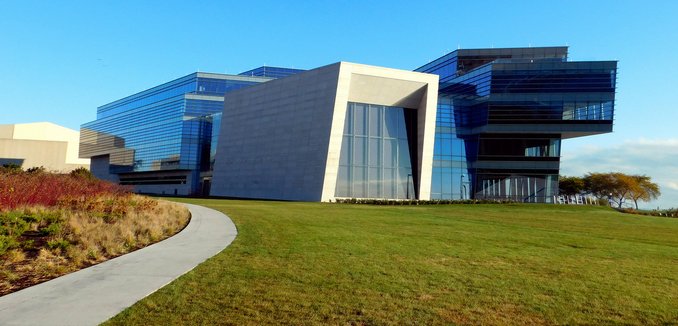Campaigns to boycott Israel are a strong predictor of anti-Semitism on college campuses, a new study has determined.
The AMCHA Initiative, which focuses on campus anti-Semitism, studied more than 100 American universities, both public and private, with large Jewish undergraduate populations. The report, which incorporated media and eyewitness reports of anti-Semitism, found significant statistical correlations between the presence of anti-Zionist student groups and anti-Semitic acts, and between the presence of faculty who support academic boycotts of Israel and anti-Semitic acts.
According to the report, 95 percent of schools with activity related to the Boycott, Divestment, and Sanctions (BDS) movement had one or more incident of anti-Semitic expression, compared to 33 of schools with no boycott activity. Fifty-six percent of BDS-active schools had “incidents that targeted Jewish students for harm,” such as physical assault, harassment, destruction of property, discrimination, or suppression of speech. Only 23 percent of schools without a prominent boycott movement had similar incidents.
The presence of anti-Zionist groups on campus was also a predictor of anti-Semitism:
99% of schools with one or more active anti-Zionist groups had one or more incidents of antisemitic activity, whereas only 16% of schools with no active anti-Zionist student group had incidents of antisemitic activity.
57% of the schools with one or more active anti-Zionist student groups had one or more incidents that targeted Jewish students for harm, whereas only 8% of schools with no active anti-Zionist student groups had incidents that targeted Jewish students.
To explain how anti-Zionist faculty contributed to the targeting of Jewish students, the report noted that members of the Feminist Studies department at the University of California, Santa Cruz “joined with members of anti-Zionist student groups in protesting and seeking to shut down a Jewish student event entitled ‘Being Queer in Israel.'”
The paper observed that the actual number of anti-Semitic incidents is probably higher that documented, since many incidents go unreported or underreported, making them impossible to verify. Some anti-Israel events were not publicly reported, and so could not be included in the data.
“These findings provide, for the first time, objective confirmation of student reports of widespread anti-Semitism, as well as evidence that the primary agents of anti-Semitic activity are anti-Zionist students and faculty boycotters, and BDS is the strongest predictor of anti-Jewish hostility on campus,” AMCHA director Tammi Rossman-Benjamin said in a statement.
The report listed Oberlin College as one of the schools with the most anti-Semitic activity. There has been growing controversy over the levels of anti-Semitism at Oberlin since The Tower reported last month that an Oberlin professor had written and promoted Facebook posts that have widely been condemned as anti-Semitic.
Four campuses in the University of California system were in the top five of AMCHA’s list of schools with the most anti-Semitic activity. Tessa Nath described the pressure associated with standing up for Israel in such a climate in Why Are Student Leaders and Jewish Bruins Under Attack at UCLA?, which was published in the June 2014 issue of The Tower Magazine.
In On Many Campuses, Hate is Spelled SJP, Daniel Mael described the history and ideology of Students for Justice in Palestine, the most prominent anti-Zionist campus group.
SJP’s support for radical, distorted, and violent views extends into the realm of concrete policy as well. Despite its stated concern for justice and human rights, it opposes any kind of collaboration or coexistence with Israel or its supporters. The SJP National website, for example, proffers what it calls “Anti-Normalization” information with links to articles that oppose working with Israel-associated organizations.
SJP is also opposes the idea of a two-state solution—the only path to a final peace solution that today seems remotely plausible—and is quite hostile to the peace process in general. Radical-Left Israeli academic Ilan Pappe, for example, who opposes a two-state solution, celebrated the group’s national conference on the organization’s website by deriding “the attempt to reduce Palestine geographically and demographically under the guise of a ‘peace process.’” Instead, he spoke approvingly of SJP as part of “a new popular and successful struggle to bring peace and reconciliation to the whole of Palestine.” In the lexicon of Palestinian nationalism, the “whole of Palestine” refers to all of what was British mandatory Palestine, thus implying the eradication of the State of Israel.
SJP’s barely-concealed extremism in this regard is further underscored by its dedication to the Boycott, Divestment, and Sanctions (BDS) movement, which seeks to strangle Israel’s economy, sabotage its ability to defend itself, and destroy its standing in the international community. BDS is now the center of SJP activism, at times taking on the appearance of an obsession. As explained by the Tufts University SJP chapter’s motto, the core principles of the organization are “Peace through justice. Equality through resistance. Humanity through BDS.”
[Photo: Steve Brown & John Verkleier / Flickr ]




